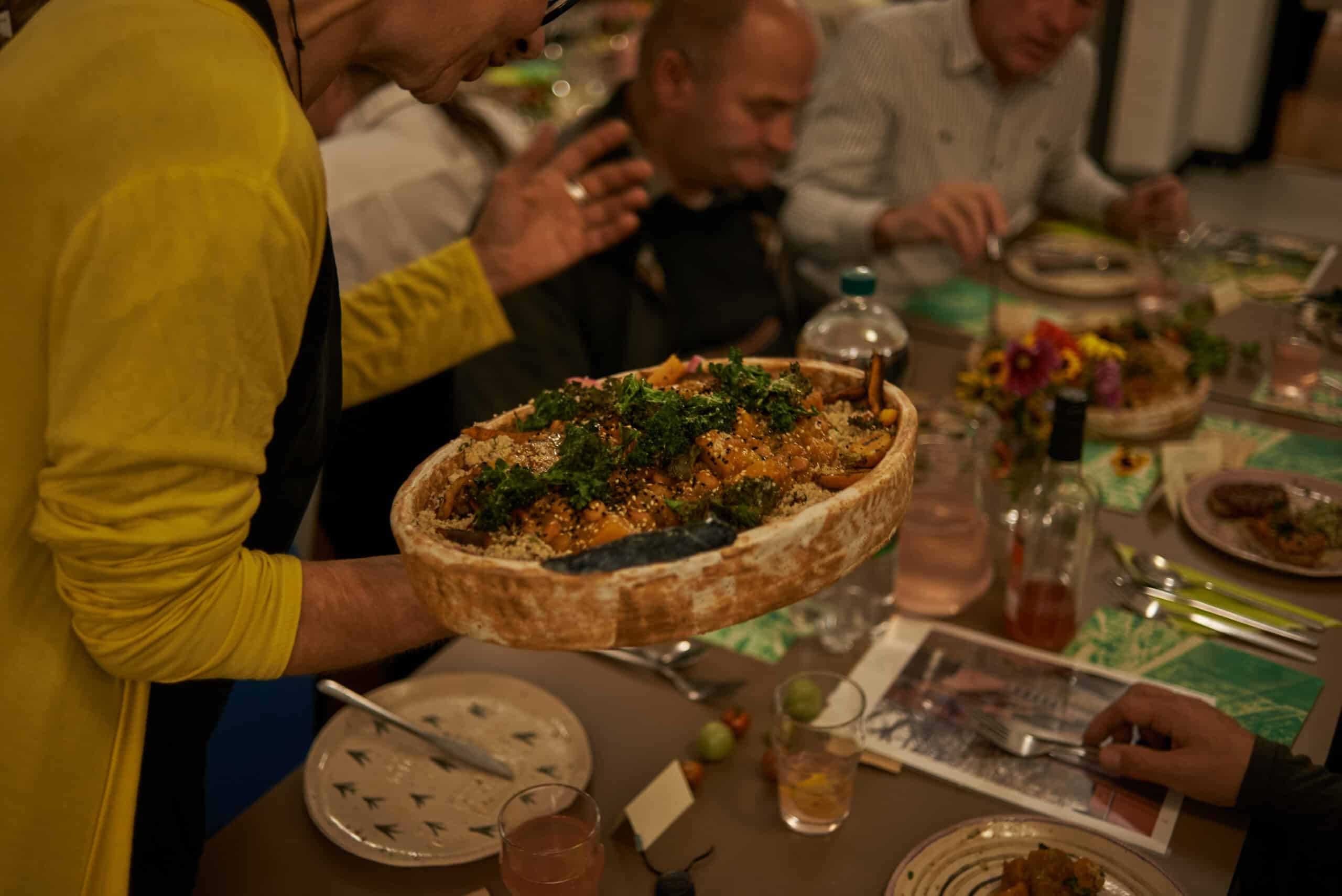- Posted on December 1st, 2022
A community-led growing scheme with Grand Union

Grand Union is committed to expanding the way that it programmes and actively builds new audiences for art. Through our Gallery & Collaborative Programmes, Grand Union has been using its cultural capital that has been built over 8 years nationally and internationally to support and create visible platforms for critically thinking and engaging across sectors and disciplines; andproactively responding to urgent issues surrounding social and ecological injustices.
Grand Union believes that art can be a tool for social change, but only when embedded within communities – with and for them. Grand Union works with other arts organisations, but more importantly across many other communities and organisations to connect cultural and community work, to create new connections and possibilities for how we can ‘be’ together.
In 2018, Grand Union was awarded £150,000 funding from Esmée Fairbairn Foundation for organisational development and capacity building. The organisation had gained a significant reputation as an artist-led gallery and studio space. Its commitment to the wider Digbeth creative community was evident and they wanted to develop an ambitious project to create sustainable futures for themselves and the artists they support. Grand Union created a new role – Collaborative Programme Curator – to think about how culture could create a flow inside and outside of the gallery. Using Grand Union’s cultural capital, the collaborative strategy developed a programme that aimed to build transformative programmes, enabling people to improve their connection and confidence through engagement with the natural world; thus responding to two of the major challenges facing us today, social and environmental injustice.
The Growing Project is a community-led growing scheme located in Birmingham. Led by Grand Union, it functions as a collaboration with several local Birmingham and Digbeth based support organisations (including St Anne’s Hostel, Crisis, Anawim, Spring Housing Association and Sifa Fireside). The Growing Project has created new gardens across Birmingham. The gardens are developed, tended and nurtured by people who are homeless, or vulnerably housed, and people in crisis.
Birmingham, like so many city centres in an era of post-industrialisation, has become increasingly polarised, separated by those who ‘have’ and those who ‘do not’, there are some that profit from privilege and wealth, whilst there are those that are really struggling to survive. The Growing Project has been the conduit for Grand Union to be a good neighbour and build meaningful relationships within its immediate environment of Digbeth, Birmingham. Digbeth is an area with increasing economic interest and land value, accelerated by the major infrastructure initiative of High Speed Rail. Grand Union aims to contribute to the pressing issues of social and environmental justice related to land and property ownership within that local context. The Growing Project didn’t start specifically as an art project, but rather, a response to understanding Digbeth at the cusp of regeneration, exposing the vulnerabilities of the supported housing sector.
The idea of The Growing Project emerged from the process of building those relationships, where Jo Capper, Collaborative Programme Curator at Grand Union, recognised an opportunity to make a positive difference to the empty garden beds in St Anne’s Hostel in Digbeth. And so, The Growing Project started to take form in 2019 at St. Anne’s and, as the impacts on individuals became apparent, the partnerships and sites across Birmingham expanded to include the 4 additional sites during 2021-22.
The aim of The Growing Project is to bring about transformation through growing and cooking food together, helping to create social cohesion, combat isolation, and give opportunities for community building. One volunteer at St Anne’s Hostel said “before the project started nobody came down here. It was bare.”
The successful pilot at St.Anne’s Hostel in 2019 culminated in a harvest dinner for 60 people, including Andy Street WMCA Mayor and local landowners, seated alongside residents of St Anne’s and members of Crisis and SIFA Fireside. Participants of the project have gained valuable skills and have gone onto enrol on horticultural courses at Birmingham Botanical Gardens and Cofton Nursery.
The Harvest Dinner is an effective, non-hierarchical way of facilitating those connections. It was considered by all who attended as a very successful event, talked about with great pride and joy by the volunteers. Many singled out the Harvest Dinner as the most memorable event for them.
“We made the crockery… pretty much everything that night was either grown or made by somebody involved with the project, which was pretty much” (Jack, 2022)
The project currently operates across five sites in Birmingham: St Anne’s Hostel, three Spring Housing Association hostels (Richmond House and Hagley Lodge and Hestia House) and a canalside space, Minerva Works Apothecary Garden. Artists and creatives Matt Cox, Carolyn Morton and Kirsty Clarke engage volunteers in weekly sessions, providing opportunities for residents and customers to garden, cook, be creative or just chat.
The Growing Project aims to develop a deeper, evaluative understanding of the environmental work we are doing. During 2021, we focused on how we could make each of our growing sites move towards more sustainable economic methods in terms of what and how we are growing. This year we are looking to develop products that enable circular economic gains for the sites, thus beginning to work towards sustainability for people and place, through land based practices.

